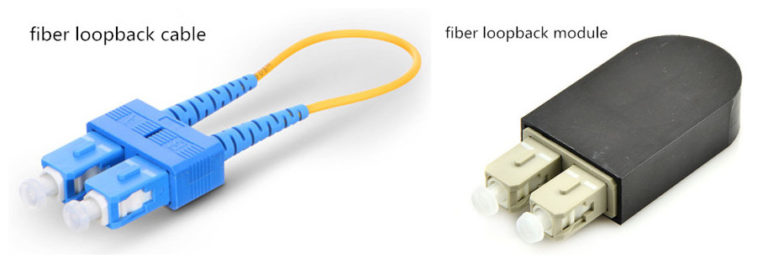What is Fiber Optic Loopback testing & cables
We all know that the importance of fiber optic cabling and its role in all major applications. So it’s very important that we need to make sure that this is working properly and maintained. In the event of troubleshooting or implementation there are many tools used, such as visual faults locator, optical power meter, & OTDR and so on. While you can see that almost all of these are using some kind of expensive equipments and skilled training is required loop back testing method is very cost effective and easy way for fiber optic troubleshooting . The loopback signal is used for diagnosing the networking problems. Let us see more about what is fiber optic loopback cabling and its various methods.
Generally, loopback is known as the routing of electronic signals, digital data streams, or flows of items back to their source without intentional processing or modification. Fiber optic loopback is widely used for various applications. In terms of telecommunication, loopback is a hardware or software method to feed a received signal or data back to the sender. It is very useful for solving physical connection problems. By diagnosing the problems of optical network, fiber optic loopback provides an easy way to test the performance of the optical fiber cabling, SFP Modules, device port or the entire network devices itself.
Fiber Optic Loopback Cable or loopback module
The deployment of fiber optic loopback components has greatly saved the trouble for device checking. Loopback testing is generally achieved with the help of loop back cables or loop back module/adaptor. Fiber optic loopback cable is the traditional fiber optic loopback with a visible cable. It is equipped with two fiber optic connectors on each end of the cable. When sticking the connectors together, the cable will shape like a loop. As for fiber optic loopback module, the biggest difference is that it has a enclosure to protect the inside cable. And the looped space is reduced for an easier usage and economic package.

By using fiber optic loopback cable or fiber optic loopback module for data transmission, the signal emitted by the device is looped from the transmit (Tx) end of an active component back to the receive (Rx) end of the same component. Further to simply this, we can say that fiber optic loopback incorporates two fiber optic connectors which are plugged into the output and input port of the equipment respectively.

How to Use Loopback Cable?
The loopback cables are often used in conjunction with testing software to “loop” traffic right back into the port. If the data sent out into the loopback plug is identical to the data received from the loopback plug, you can assume that the basic communication functions of the port are working properly. So the common application of loopback cable is Loopback Test.
Fiber loopback cable is often utilized to check whether the transceiver module is working perfectly as designed. As we all know, transceiver module has two ports, a transmitter port and a receiver port. The former one is to send out laser signals and the latter is to receive signals. When performing the loopback test, the fiber loopback cable can be directly plugged into the output and input port of transceiver module respectively (the ports at the ends of the connection must be compatible). Thus, during the testing process, the loopback cable directly routes the laser signal from the transmitter port back to the receiver port. Then we can compare the transmitted pattern with the received pattern to troubleshoot a defective node in the network. Fiber optic loopback testing is the easiest way to ensure that the transceiver works faultlessly. You can have a look at this video also to get a better understanding of loop back testing.
Fiber Loopback cable types
In a word, fiber optic loopback is basically a patch cord used for fiber optic loopback testing. Similar to other cables, it also has multiple classifications of fiber types, connector types for different needs. We know that the fiber optic cables are having different connectors and in order to comply with this different loop back cables and adaptors are also available. Categorized by connectors, fiber optic loopback has SC, LC, MTRJ, E2000 and even MPO types, etc. LC fiber optic loopback complies with the RJ-45 style interface. Having a low insertion loss, low back reflection and high precision alignment, LC fiber optic loopback is widely used all over the world. Another frequently used type is SC fiber optic loopback. Its connector is compliant to IEC, TIA/EIA, NTT and JIS specifications.
Besides this, loop back cables are available that suites different types of fiber optic cables such as single mode(SM1 & SM2) and multimode(OM1, OM2, OM3, OM4). As you know that the features and properties of each cables are different fiber optic loopback cables also can be divided into single mode and multimode fiber loopback. Hence you must get a loop back cable or connector according to that.

Knowledge Credits: FS.COM
Have a comment or points to be reviewed? Let us grow together. Feel free to comment.


It was a clear and perfect explanation about Fiber Optic Loopback.
Thanks a bunch